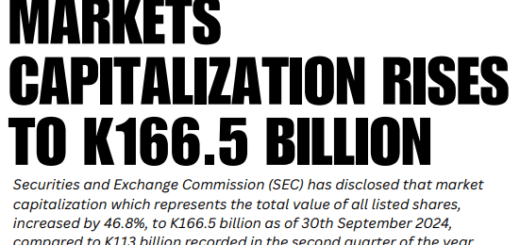IMF Austerity Measures Pose Negative Impact on Zambia’s Public Service Delivery – Study
A latest study conducted by ActionAid Zambia has revealed that the International Monetary Fund (IMF’s) Extended Credit Facility (ECF) reforms have had negative effects on various sectors of the economy such as education, petroleum and mining.
The Research titled: “An Analysis of the IMF’s ECF and Austerity Impacts on Government Policy and Service Delivery,” highlights the far-reaching consequences of austerity measures on public service delivery to vulnerable groups such as unemployed youths, women, and children.
Presenting the Research findings in Lusaka, Action Aid Zambia Consultant, Thomas Mwimba noted that from the time Zambia joined the IMF Programme, vulnerable groups have been disproportionately affected by policy impacts.
Mr. Mwimba observed that the ECF have resulted in contractionary fiscal and monetary policies, which have had negative effects on access to finance for Small and Medium Enterprises (SMEs).
“Despite critical in restoring fiscal fitness and macroeconomic stability, contractionary fiscal and monetary policies from the IMF Programme have negative effects on the economy, particularly on vulnerable groups,” Mr. Mwimba stated.
He further observed that the removal of subsidies and reinstatement of Value Added Tax (VAT) and excise duties on fuel, as well as monthly petroleum price reviews, has led to higher fuel prices, thereby increasing the cost of living for low-income households, creating an unpredictable policy environment for businesses, affecting long-term planning and production.
Mr. Mwimba urged the Government to continue to protect, prioritize and scale up spending to critical social sectors such as education, health and social protection, to alleviate the effects of the IMF Reforms, while tackling tax loopholes and ensuring prudential fiscal management and tax justice to maximize resources for national development.
Officiating at the event, Chairperson of the Parliamentary Committee on Planning and Budgeting, Fred Chaatila stressed the need to ensure that fiscal reforms protect the most marginalized in society especially women and girls.
Mr. Chaatila said this group of people must be placed at the centre of the country’s development agenda.
Speaking earlier, ActionAid Country Director Faides Tembatemba, emphasized the need for the country to unite to address critical issues affecting citizens such as the pressing debt situation, which has constrained Zambia’s ability to adequately invest in essential public services.
Ms. Tembatemba said as Government prioritizes fiscal consolidation, there is need to do so with a clear focus on equity and fairness, ensuring that the burden of economic adjustments should not fall on the marginalized groups.
“The research paper serves as a wake- up call and road map as it challenges us to rethink balance between economic reforms and social protection,” Ms. Tembatemba asserted.
And commenting on the Study, Ministry of Finance Principal Economist -Extended Debt Management, Rachel Phiri clarified that the inception of the economic reforms was not part of the IMF austerity measures as this was what Government was already implementing to alleviate the debt challenges.
Ms. Phiri stated the IMF has been providing accountability to the reforms that Government is implementing.
She also recommended that there should be another study that will show where Zambia would have been if it did not get on the IMF programme in August 2022.
By 2022, IMF approved a US$ 1.3 billion Extended Credit Facility for Zambia, with conditionalities affecting the country’s fiscal & monetary








